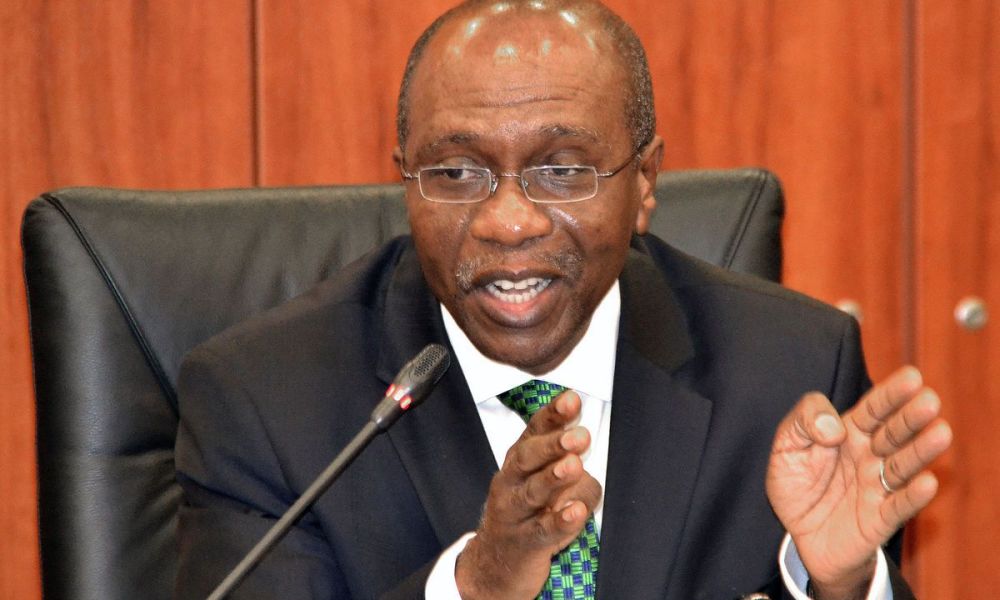In a move described as surprising and shocking by analysts, members of the Central Bank of Nigeria (CBN) Monetary Policy Committee (MPC), on Tuesday, voted at the end of their meeting, the third for the year, to raise the benchmark Monetary Policy Rate (MPR) by 150 basis points from 11.5 to 13%, a situation blamed for the southward slant of the benchmark Nigerian Exchange (NGX) All-Share index.
Analysts blamed the 1.82% drop in the NGXASI for the late market reactions to the rate hike, just as investors worth on the bourse as measured by the NGX market capitalisation on tumbled by N518.549bn, a situation expected to continue in the days ahead.
According to the communique issued at the end of the meeting, the committee voted to unanimously raise the MPR by various degrees. While six members (the majority) voted to raise the MPR by 150bps, four opted for a 100bps raise, while a lone voice wanted a 50bps hike. The committee also agreed to retain the asymmetric corridor of +100/-700 basis points around the MPR; retain the CRR at 27.5%; and retain the Liquidity Ratio at 30%.
While expressing delight at the year-on-year 3.11% GDP growth in 2022Q1, the sixth consecutive growth, expressed concern at the aggressive rise in inflation April 2022. The lending rate hike, the committee continued, became necessary “to dampen the expectation of the inflationary pressure… (and) shift from its historically cautious approach on interest rate… while still adopting an accommodative approach to development finance initiatives that have supported the growth of the economy and sustained recovery.”
That notwithstanding, the MPC, in the communique signed by Godwin Emefiele, the chairman and governor of the CBN, expressed the need to retain rates on the development finance initiatives of the apex bank at five percent till March 2023.”
Members, the communique noted, were faced with a dilemma of whether to hold, tighten, or loosen the rate, given that “loosening in the face of the rising policy rates in advance economies may result in a sharp rise in capital outflow and faster dry-up of foreign credit lines. MPC also feels that loosening could lead to further liquidity surfeit and inflationary pressure. S to whether to hold, MPC feels its stance would strengthen the perception that the CBN has abandoned its primary mandate of taming inflation.
“On the need to tighten, MPC feels that tightening would help moderate the inflationary trade-off from the steady growth recovery so far. MPC also feels that tightening would help rein in inflation before it assumes a galloping trend, considering the progressive increase in headline inflation (m-o-m), particularly with the sharp 90 basis point increase in April, 2022.”
Tightening, members further reasoned, “would narrow the negative real interest rate margin, improve market sentiment and restore investor confidence. Equally, members believe tightening would moderate inflationary pressure pass-through to exchange rate depreciation and moderate the speed of capital flow reversal, provide incentives for foreign capital inflows and sustain remittances. Lastly, tightening could moderate government domestic borrowing, as government debt servicing to revenue ratio increased significantly in recent times, threatening debt sustainability,” it added.
Researchers at Coronation Assets Management Limited, another investment banking group, identified bellwether stocks that dragged the indicators down owing to the knee-jerk reaction in the aftermath of the rate hike by investors as MTN Nigeria, which lost 7.63%; and Dangote Cement, 1.00%, among others.
Reacting also, Cordros Securities, which had expected a 50bps rate hike before the meeting, in a note to clients, believes the “the hawkish rendition among global central banks further compelled the MPC to make a U-turn on its pro-growth objective to mitigate capital flow reversals and stem currency pressures.”
The MPC decision, it noted, is in line with the actions of central banks on the continent, including the Bank of Ghana (BOG) which recently raised its MPR by 200bps to 19.00%, while the South African Reserve Bank (SARB) raised the repo rate by 50bps to 4.75% this month; as the Central Bank of Egypt upped its deposit and lending rate by 200bps apiece to 11.25% and 10.25% respectively.
“In our opinion, the MPC has opted for a proactive stance by frontloading rate hikes at this meeting instead of a gradual increase in the MPR. We believe concerns about the domestic economy’s health and the need to ease the burden on government financing costs will make the Committee hold off on further rate hikes in the next two meetings in July and September. However, we have pencilled down a 100bps hike in the MPR at the last meeting in November.
“In the interim, we expect the CBN to sustain the use of its development finance initiatives to ensure the rate hike does not derail the fragile recovery,” Cordros Securities added.
The group expects that 2022 being a pre-election year, investors would minimise exposure to risk assets, while not envisaging “a prolonged bearish run in the market, given the strong corporate earnings delivered by companies in the Q1-22 earnings season. As such, we think a short-term market correction will present opportunities for investors to make re-entry into stocks with sound fundamentals and attractive dividend yields.”








